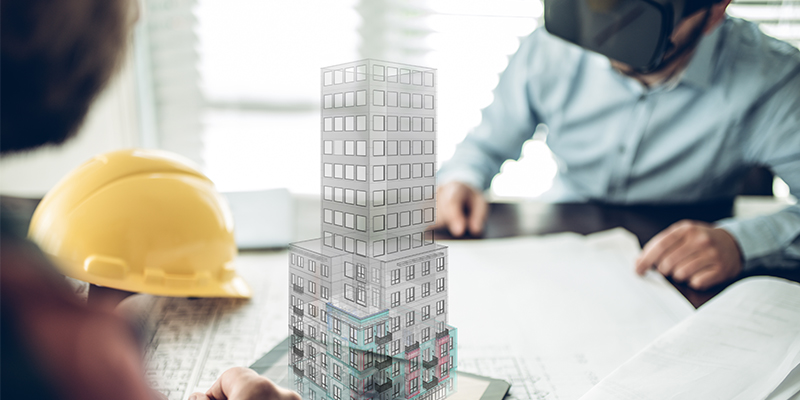Several broad themes are driving the future of real estate, said K.C. Cleary, Partner, Fifth Wall, to Officecast virtual series attendees – some more than others during the pandemic, and some that will emerge in the post-COVID environment. Technology plays a role in each one, by helping to create solutions or adapt real estate to meet new office expectations.
Among the themes Cleary outlined, those of utmost importance today are “Health and Safety,” which establish the feeling that tenants and visitors are safe within building spaces, and the “Impacts of the WFH [Work From Home] Experiment,” which began in March, and continues with no end in sight. Other themes, like “Economic Uncertainty,” create challenges for tenants in forecasting future business, making real estate decisions difficult. The theme of “Culture/Social Capital” is the acknowledgement that physical real estate is more than a place we come to, it’s where companies come together. “Data and Analytics” are key right now as well, as building owners and managers focus on employee safety and the potential need for contact tracing.
Those themes – along with Mobility, Sustainability, Flexibility Space Utilization and Alternative Uses of Space, E-commerce and the Changing Role of Retail, Hospitality, Post-COVID design, Technology Adoption and Disruption, Security and Surveillance and Amenities – are offering limitless potential for PropTech.
He shared what he sees as the top five PropTech opportunities post-COVID, including:
Air quality – Comfort is important here, with thermal preferences and humidity levels creating an environment of physical comfort. In 2020, aerosol particulate matter has become a critical focus with the spread of the Coronavirus. From a technology perspective, many focus on what level of standard they want to reach for air quality, but the bigger question is what type of monitoring should be put in place. Particulate matter be monitored through sensors but can require expensive HVAC upgrades.
Seamless consumer journeys – This an individual’s experience while on property, from parking to entering and traveling through the building. Access control is foundational, and tenants expect the experience to be seamless. While digital apps are desirable, there are challenges integrating with older systems, like those for elevators. Biometrics, in tandem with mobile access, can offer easily access control. Regarding the pandemic, these tools have been critical in tracking behavior and locations that may be necessary for contact tracing.
Tenant engagement – This is the relationship between tenants and landlords, and some core functionalities and third-party integrations are essential. On a basic level, these tools are for everything from booking shared spaces to building guest management, but move to more advanced efforts like retail offers, food delivery, and surveying and analytics.
Space utilization sensors – These increase by cost and complexity, but have been critical during COVID to measure occupancy levels and people flow. From device-based occupancy sensors linked through Bluetooth to space occupancy sensors, like those used to indicate open spaces in a parking garage, sensors range in capability. Smart cameras yield privacy concerns, although some relay only data and not images.
Flexible work – The use of office space is always fluid. Flex and core buildings have retail and F&B on street level, then higher floors include meeting, flexible and traditional office spaces. In a hub and spoke model, one main office may be supported by smaller, remotely located facilities that are closer to where employees live.
Are there risks or liabilities in using such tech, and can they create a false sense of security? Risk is not binary, said Cleary, but all relative. The key is constructing an arrangement between the human and the technology that makes people even more safe.
This post is brought to you by Marcus & Millichap, sponsor of NAIOP’s Officecast 2020. Learn more about Marcus & Millichap at www.marcusmillichap.com.















